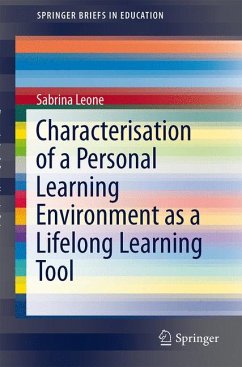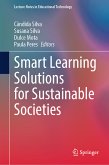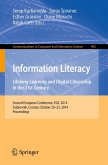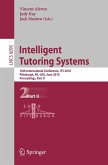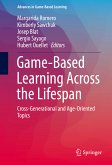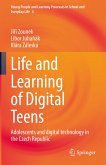This work focuses on the characterisation of adult lifelong learners' PLEs by implicit and explicit tools of personalisation. The synergy of formal and informal learning in the dynamic construction of a lifelong learner's PLE has been explored. The SSW4LL (Social Semantic Web for Lifelong Learners) format has been devised, and the SSW4LL system, built on Moodle 2.0 integrated with an adaptive mechanism (conditional activities) and some tools of Social Semantic Web (Semantic MediaWiki, Diigo and Google+), has been designed, implemented and successfully validated as a device suitable to provide a dynamically personalised learning environment to the lifelong learner.
Specifically, this volume thoroughly illustrates the implementation of the whole SSW4LL format in its validation course SSW4LL 2011, and discusses the results of a comprehensive literature review and the outcomes obtained from SSW4LL 2011. The integration of social software into formal learningenvironments can make a qualitative difference to giving adult lifelong learners a sense of ownership and control over their own learning and career planning, and can aid them to be effectively self-directed and self-regulated.
Dieser Download kann aus rechtlichen Gründen nur mit Rechnungsadresse in A, B, BG, CY, CZ, D, DK, EW, E, FIN, F, GR, HR, H, IRL, I, LT, L, LR, M, NL, PL, P, R, S, SLO, SK ausgeliefert werden.
"Leone not only describes different (social) learning capabilities, but also includes suggestions regarding personal learning environments, case studies, and best practices. ... The book presents the conclusions of this study, along with limitations and future development steps. It would be a useful tool for teachers and instructors, as the author supports the presentation with additional information, case studies, and best practice examples." (M. Caramihai, Computing Reviews, December, 2013)
"Sabrina Leone's offer in the series 'SpringerBriefs in education' provides the context for a focus on personal learning environments ... as a likely next generation of online learning system. She contends that PLES have the capacity to support lifelong learners in more effective and engaging ways than most current learning environments. ... If you are interested in the pursuit of technological innovations in support of online teaching, learning and pedagogy ... it could be worth spending the hours digesting the detailed discussion." (Robyn Smyth, British Journal of Educational Technology, Vol. 44 (6), November, 2013)

